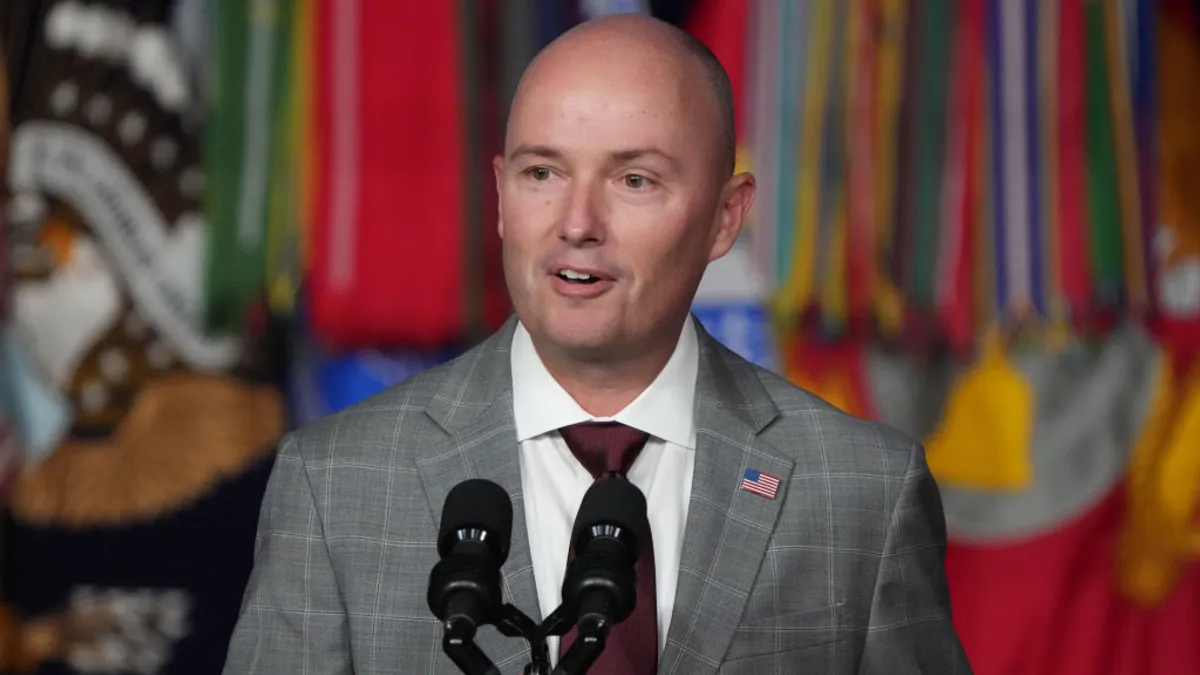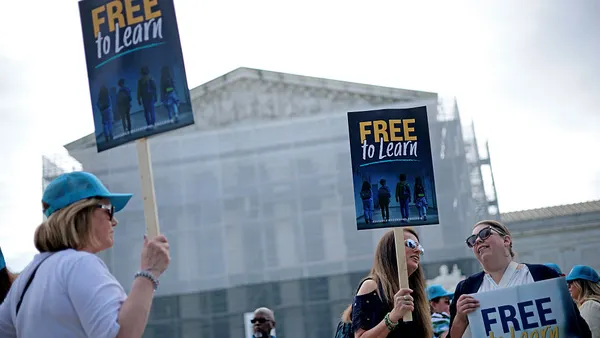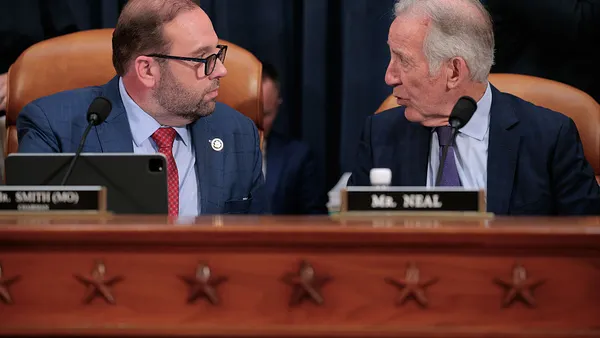Dive Brief:
- A Utah private school choice program that began providing scholarships for students this school year has been declared unconstitutional by a state judge in Salt Lake City.
- In the Friday ruling, Judge Laura Scott said the Utah Fits All Scholarship Program violates Utah Constitution provisions requiring state income taxes to support a public education system "free from sectarian control."
- The 57-page ruling will be scrutinized nationwide, as many conservative states have expanded state private school choice options in recent years and the Trump administration is pushing for a federally supported choice program. Public school advocates, meanwhile, have fought these initiatives through lawsuits and messaging about the programs' harms to public schools.
Dive Insight:
The Utah Fits All Scholarship Program is an education savings account that lets students use part of their state education funding for educational purposes of their choice, such as private school tuition, tutoring, services for students with disabilities, transportation and extracurricular activities.
The program, funded at $82.5 million for its first year, allowed for about 10,000 students to receive $8,000 for education expenses this school year. All students are eligible for scholarships, but participation is limited by the budget. EdChoice, a pro-school choice advocacy organization, estimates the program as funded covers less than 2% of the state's K-12 population.
In May 2024, the Utah Education Association, a teachers union and other plaintiffs sued the state, saying the program diverts taxpayer money away from public schools and to private schools that aren't free and open to all students.
Although participating private schools must adhere to nondiscrimination practices for race, color or national origin, they are permitted to discriminate on any other basis, including religion, sex, gender, sexual orientation, gender identity, and disability status, the ruling said.
"The court concludes that the legislature does not have plenary authority to create a publicly funded education program outside of the public education system that is neither 'open to all the children of Utah' nor 'free,'" said the ruling from Utah's Third Judicial District Court.
Judge Scott's decision, however, said "the court is not wading into the political debate over the merits of 'school choice' or expressing any view on the indirect funding of sectarian schools."
In a Friday post on X, Utah Gov. Spencer Cox said the state will appeal. "While we are disappointed in the court's decision on the Utah Fits All program, our commitment to Utah Families and their right to make choices about their children's education remains unchanged," Cox said.
The legality of private school choice programs across the country has been debated for decades, and legal challenges to such programs often question state constitutional clauses or First Amendment freedom of religion rights.
Including Utah, 17 states have education savings account programs. Participation in ESA programs has jumped in recent years from 40,205 students in 2022 to 488,736 this year, according to EdChoice.
Just last week, Texas House lawmakers approved an ESA program for that state, two months after it cleared the Senate. Gov. Gregg Abbott has said he would sign the bill into law.
About 1.2 million students participate in various private school choice programs in 34 states, the District of Columbia and Puerto Rico, EdChoice said.
Republican lawmakers in Congress are advocating for a federally funded, nationwide private school choice program.
The Educational Choice for Children Act of 2025, introduced Jan. 31 by Rep. Adrian Smith, R-Neb., would essentially create a new tax break for individuals and corporations that make donations toward tuition costs at private and religious schools. The tax credit would also cover donations for instructional materials, tutoring, therapies for students with disabilities, and dual enrollment for private and public school students.
In January, President Donald Trump signed an executive order to make expansion of school choice a priority for the U.S. Department of Education, citing the need to give families more opportunities to make educational decisions for their children.







 Dive Awards
Dive Awards








